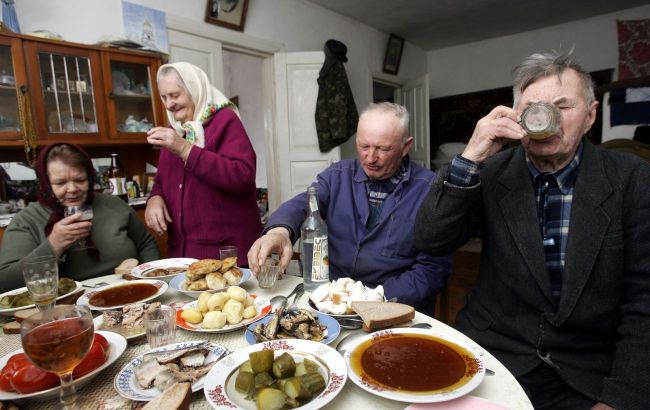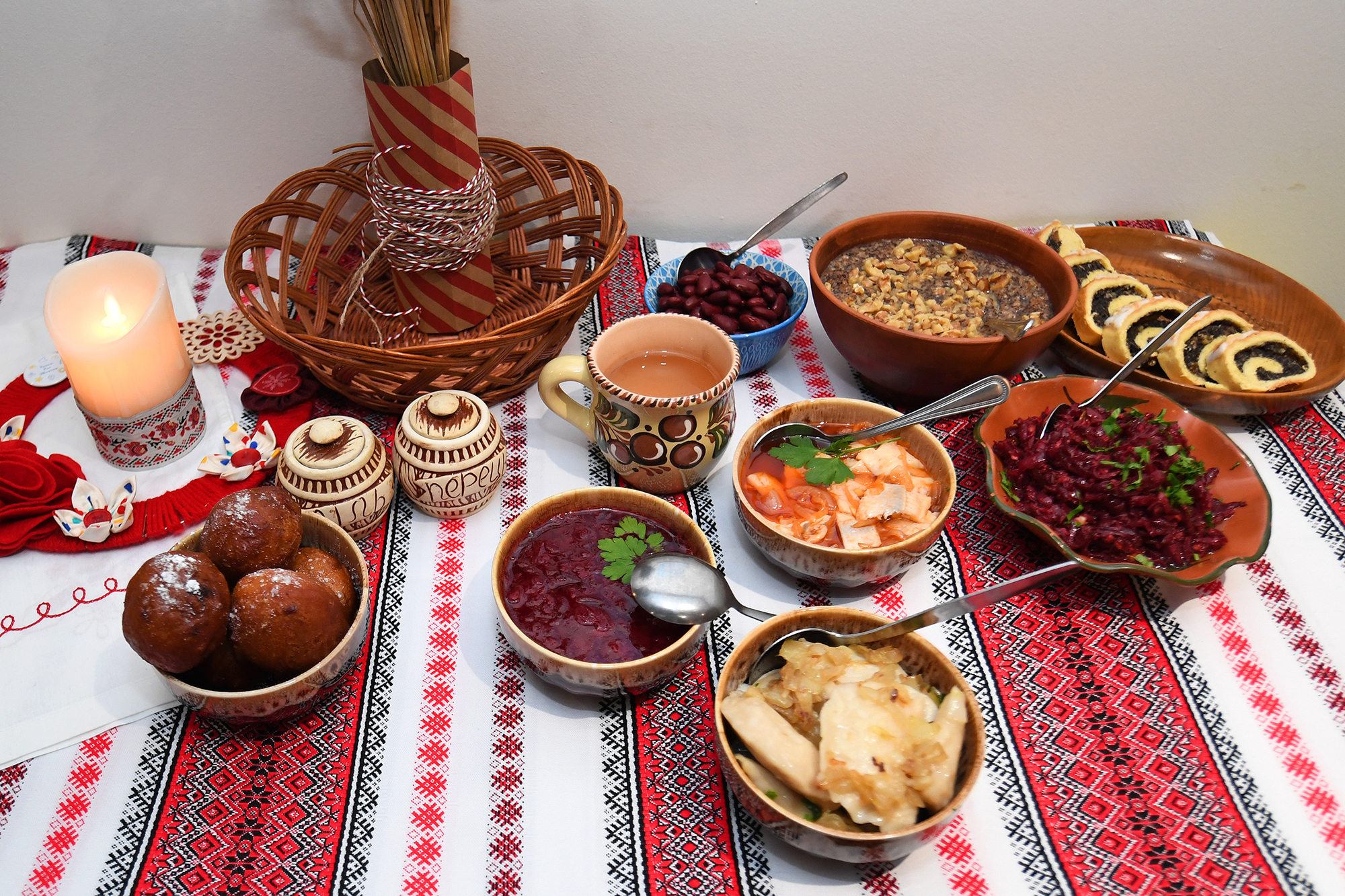Ukrainian funeral traditions: Foods and drinks with symbolic meaning
 Traditional dishes and drinks for a memorial table in Ukraine (photo: Getty Images)
Traditional dishes and drinks for a memorial table in Ukraine (photo: Getty Images)
In ancient Ukrainian tradition, the memorial meal held deep symbolic meaning. Each dish and drink served after a funeral or on memorial days acted as a sign of remembrance and respect for the deceased. These customs have been passed down through generations and remain today.
Historical origins of the memorial meal
In old Ukrainian culture, memorial food always had a ritual character. After a funeral and on special days of remembrance, families gathered not only for collective prayer but also to unite the living and the deceased through symbolic food.
Main dishes and their meanings
- Kutia is the main ritual dish, symbolizing eternal life and the spiritual connection of generations. Made from wheat or barley, with poppy seeds and honey, representing purity and sweetness of the future.
- Pancakes. Their round shape symbolizes the sun and the eternal cycle of life and death. Prepared in memory of ancestors’ souls.
- Borscht and porridge are "earthly" dishes symbolising unity with ancestors and the heritage left on earth.
- Fish is a symbol of the soul and salvation in Christian tradition.
- Bread is a mandatory element, representing abundance and continuity of the family line.
Drinks served at memorials
- Uzvar is a dried fruit drink associated with life and fertility.
- Medovukha or light homemade beer is a symbol of prosperity and community unity.
- Wine is used less often (mainly because of its sacred connotation).
 Each dish on the memorial table has its own meaning (photo: Getty Images)
Each dish on the memorial table has its own meaning (photo: Getty Images)
Living heritage
Today, memorial meals are often simplified, but many families still prepare kutia, uzvar, and pancakes. Even if the ancient meanings are not always consciously remembered, the tradition of shared meals preserves the core, which is memory and respect for ancestors.
What to prepare for a memorial meal
A traditional memorial meal can be both symbolic and practical. Recommended dishes and drinks:
- Kutia: classic wheat or barley dish with poppy seeds, honey, raisins, nuts, and optional dried fruits for flavor and color.
- Pancakes: round, symbolic, made from wheat dough, served with honey or homemade uzvar.
- Borscht: light, with little or no meat, as a symbolic "earthly" dish.
- Porridge: rice or buckwheat, representing unity with ancestors.
- Uzvar: made from dried apples, pears, plums, and raisins; add honey and a bit of cinnamon for taste.
- Fish: baked or boiled, symbolizing the soul and salvation in Orthodox tradition.
- Bread: homemade, rye or wheat, a required attribute of the memorial table.
Tip: Even when preparing a modern version of the memorial meal, maintain the symbolic meaning of each dish. It is important not only to cook but also to understand the meaning of these foods. They are a sign of commemoration, respect, and spiritual unity.
 Uzvar in Ukraine is served not only on holidays but also at memorial meals (photo: instagram.com/lotosmag)
Uzvar in Ukraine is served not only on holidays but also at memorial meals (photo: instagram.com/lotosmag)
Previously, we revealed which Ukrainian holidays were banned by the Soviet authorities, and how people preserved them.
Sources: Institute of Folklore Studies of the NAS of Ukraine, Center of Ukrainian Culture and Arts, Ukrainian Institute of National Memory.

